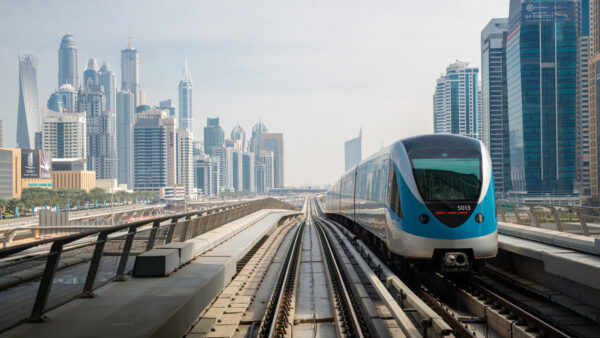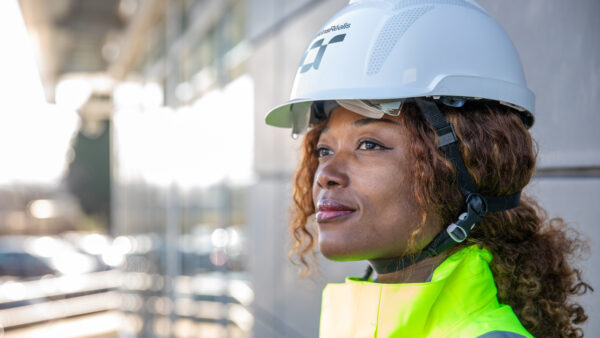Three Nordic cities have responded to a new report on lower-emission construction by announcing new policies on how building works will be conducted.
The mayors of Copenhagen, Oslo and Stockholm said they will cut the greenhouse gas emissions and air pollution from construction sites in the effort to solve the climate crisis and improve public health.
Our research shows that there are significant opportunities to act, but we need to rethink the way buildings and infrastructure are delivered– Ben Smith, Arup’s Energy and Climate Change Director
The announcement came yesterday as Arup, the University of Leeds and the international cities network, C40 Cities, published a report on how the construction industry could cut the emissions generated from buildings and infrastructure 44% by 2050.
Next year, Copenhagen will promote biofuels for its own construction machinery and fossil-free non-road mobile machinery, as well as “strengthen efforts that municipally commissioned construction sites and civil work will be fossil-free”.
In Oslo, new schools and sports halls will be built “emissions-free and with low climate materials”.
Stockholm will work with the Swedish Construction Federation and the Swedish Environmental Research Institute, IVL, to evaluate all aspects of the building process from a climate point of view. The evaluation tool is being piloted now and the city aims to roll it out in 2021.
To reduce the climate impact of construction in cities, the report urges action in six areas:
- More efficient material design;
- Better use of existing buildings;
- Switching from high-emission materials to sustainable timber where appropriate;
- Using lower-carbon cement;
- Reusing building materials and components;
- Using low, or zero-emission construction machinery.
The report can be downloaded here (PDF).
“Copenhagen will work to purchase fossil-free fuel for its own machinery and heavy vehicles, pilot projects with tender requirements for fossils-or emission-free construction machinery in construction projects,” said Frank Jensen, Lord Mayor of Copenhagen, and C40 Vice Chair. “We will also collaborate with market players to make them use fossil-free fuels.”
Copenhagen will also demand fossil- and emission-free solutions in public procurement and city supported projects.
In Oslo, all city-owned machinery and municipally or owned construction sites will operate with zero emissions by 2025.
Raymond Johansen, Governing Mayor of Oslo, said: “In Oslo, construction sites generate as much as 7% of total emissions, equivalent to an additional 30,000 petrol cars on the road.
“New kindergartens, schools, sports halls will in future be built emissions-free and with low climate materials. The building industry is our closest ally and an enthusiastic supporter.
“We are confident that by 2030 Oslo’s air will be cleaner, emissions lower and environment healthier thanks to the actions we are taking today.”
Both cities have also pledged to reduce the indirect emissions generated from building works, through the prioritisation of retrofits and refurbishment of their existing stock, de-incentivising demolitions, and encouraging the use of low-carbon and reusable materials.
Stockholm’s approach is to evaluate all aspects of the building process from a climate point of view – from the choice of materials and the use of machinery to the construction processes.
“Together with the building industry and academia Stockholm is creating a powerful tool to scrutinise the climate impact of the whole building process. Using it will help us steer towards the most climate efficient solutions,” said Anna König Jerlmyr, Mayor of Stockholm.
Ben Smith, Arup’s Energy and Climate Change Director, said: “As the sector responsible for the largest share of consumption-based emissions in C40 cities between now and 2050, it’s clear that the construction sector must do more to reduce its carbon impact. Our research shows that there are significant opportunities to act, but we need to rethink the way buildings and infrastructure are delivered.
“Making that change a reality will rely on working with all those with responsibility for delivering development. We believe that the construction sector can embrace this change, if it invests in necessary skills and training and seeks to promote innovation.
“Where this happens, the benefits go beyond emissions reduction – they are social, environmental and economic, cleaner air in cities, less noise and new job opportunities.”
Mayors of around 70 cities are meeting in Copenhagen 9-12 October for the C40 World Mayors Summit 2019 to discuss the global climate crisis.
Image: Copenhagen will promote biofuels for its own construction machinery (Pudelek/CC BY-SA 4.0)
Comments
Comments are closed.







A great example to the world